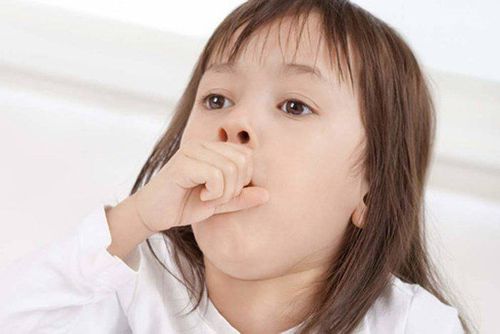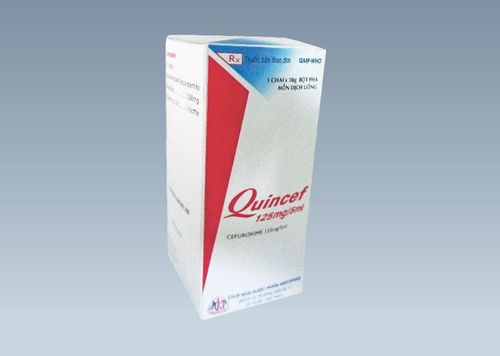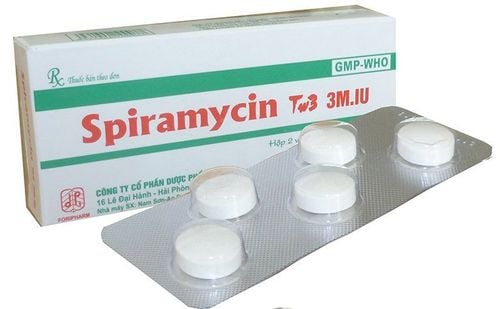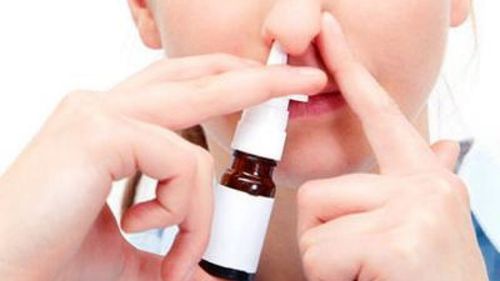This is an automatically translated article.
Children are the most susceptible to respiratory infections, especially when the weather changes, making them easy to get sick again. Respiratory infections make it difficult for children to live and study, and if left untreated for a long time, there will be dangerous complications. So, how to recognize the danger signs of children with respiratory infections?
1. What is a respiratory infection?
Respiratory tract infections are diseases caused by bacteria and viruses, they cause damage to the respiratory tract in different locations including: larynx, trachea, bronchi, ears, nose, throat, lungs.
Respiratory infections include upper respiratory tract infections and lower respiratory infections:
Upper respiratory tract infections include pathologies such as sinusitis, tonsillitis, pharyngitis, otitis media, ... Lower respiratory tract infections including diseases related to inflammation of the larynx, trachea, bronchi and lungs. Respiratory tract infections in children can leave severe sequelae, greatly affecting the child's later development. Therefore, it is necessary to take the child to the doctor and treat promptly as soon as the child shows dangerous signs of a respiratory infection.

2. Signs of a child's respiratory tract infection
Common signs of a child with a respiratory infection include:
Anorexia or poor feeding. The child is tired, or fussy, the skin becomes greener. The child has a cough and is accompanied by other signs such as diarrhea, runny nose, and wheezing. When the respiratory infection gets worse, the child will have dangerous signs such as:
The child is breathing fast, breathing indrawing the chest. Not suckling, sucking little or not eating or drinking. Vomit everything, including water. Convulsions, cyanosis, lethargy, or difficulty waking the child. The child is breathing abnormally. Severe malnutrition. To know if the child is breathing abnormally or not, parents need to count their child's breathing for 1 minute with a second hand clock when the child is lying still, not crying. The child has rapid breathing when:
Breathing rate is over 60 breaths/minute for children from 0 to 2 months old. Breathing rate over 50 breaths/minute for children from 2 months to 12 months of age. Breathing rate over 40 breaths/minute for children from 12 months to 5 years old. Parents need to observe when the child breathes in and out, the lower part of the ribcage will be concave or expand as usual. This is how to recognize signs of chest indrawing in children with respiratory infections.
It is necessary to quickly bring the child to medical facilities for timely examination and treatment when the child shows signs of serious illness.

3. How to take care of children with respiratory infections
Children with respiratory infections can recover on their own if they are monitored and cared for well. Parents need to follow the following care instructions:
Need to clean the child's nose with cotton swabs or can use nasal suction and 0.9% physiological saline drops. Put saline drops on each side to dilute the nasal discharge, then use a nasal aspirator to remove the fluid. When a child coughs with phlegm, pat the child's back (preferably before a meal or 1 hour after a meal to avoid vomiting), done by folding the hand at the wrist and cupping it. It is recommended to use male medicines to relieve cough in children, or can use prepared herbal medicines such as syrups for children. When the child has a fever, it is necessary to put on cool clothes for the child, remove the clothes, use warm water to apply the forehead, armpit, groin for the child and give the child plenty of water to drink, breastfeed more, and eat easily digestible foods. . When a child has a fever above 38.5 degrees, it is necessary to have a doctor's prescription in the use of antipyretic drugs in children. Always keep the child's body clean and the child's room clean. Ensure adequate nutrition for children to increase resistance. Let children drink enough water, drink more fruit juices to avoid the risk of dehydration when children have fever and upper respiratory tract infection.
4. Some measures to prevent respiratory infections in children

Children need to be fully vaccinated. Children should be exclusively breastfed until they are less than 6 months old. Proper, balanced and complete nutrition. Help children stay away from the source of infection, avoid going to crowded places, especially where there are many people with cough. Children's body hygiene, it is necessary to wash hands before and after taking care of children. Children's bedrooms must be clean and airy, avoiding children from smoke, polluted environment, and dust. Children need to be kept warm when it is cold or the weather changes. Provide enough water for the child's body. Respiratory tract infections are the most common disease in children, and this is also the leading cause of hospitalization for children, especially children under 5 years of age. It is necessary to pay attention to the manifestations of the disease in order to have appropriate care for the child. If abnormal signs appear, the child should be taken to the doctor and treated immediately to reduce complications and the risk of death.
In order to prevent respiratory infections, parents should pay attention to the nutrition that improves the child's resistance. At the same time, add supporting foods containing lysine, essential micro-minerals and vitamins such as zinc, chromium, selenium, B vitamins,... snacks and less digestive problems.
Parents can learn more:
Why do you need to supplement Lysine for your baby?
The role of zinc - Guidelines for reasonable zinc supplementation
Please visit the website Vinmec.com regularly and update useful information to take care of your baby and family.













